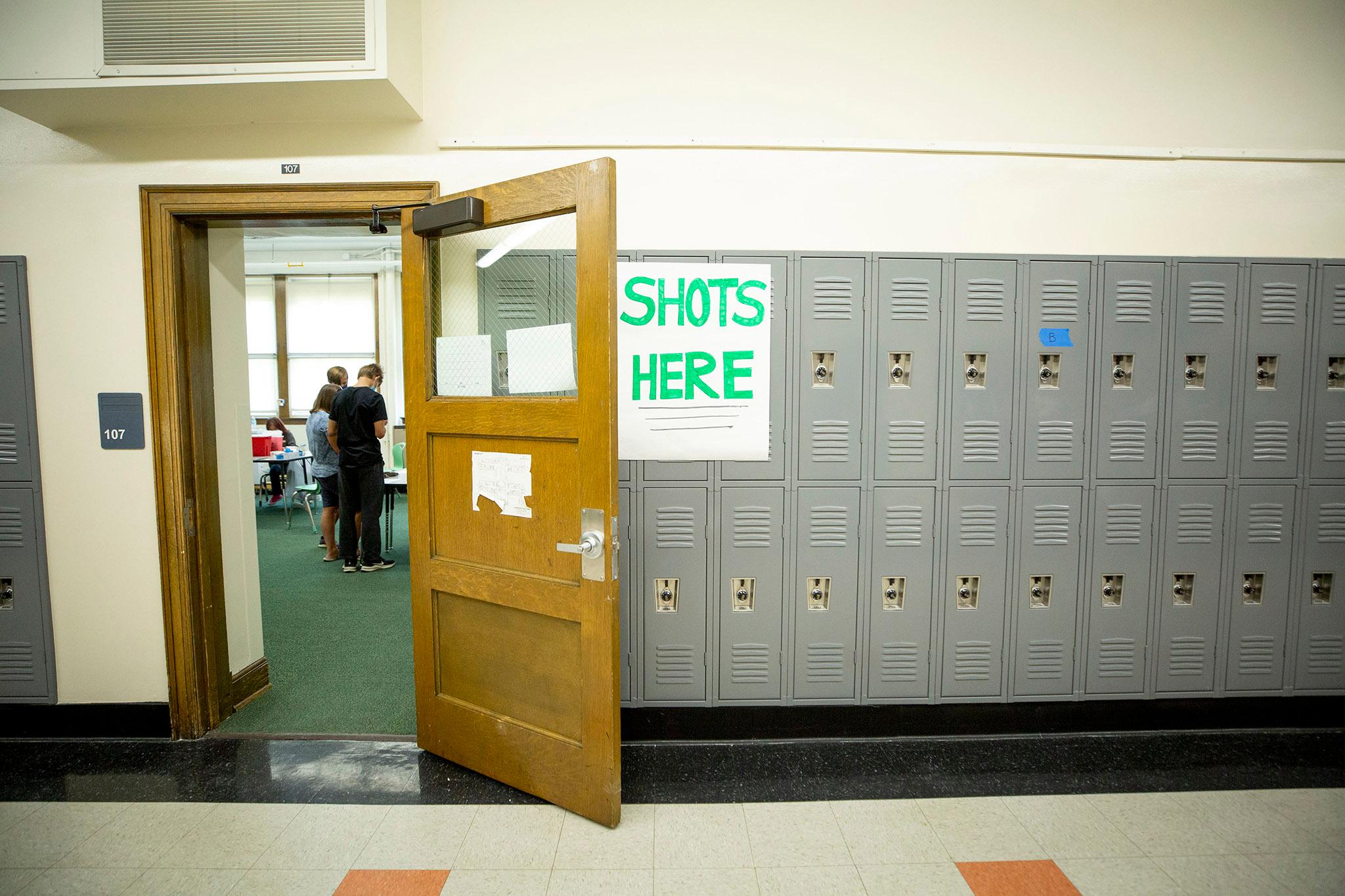
Gov. Jared Polis and his staff on Thursday presented some details of the effort to vaccinate children ages 5 to 11, while the governor said he’s considered a variety of measures in a “toolbox” of options to deal with shrinking hospital capacity, driven by a fall surge of coronavirus patients.
On Tuesday, an advisory committee to the federal Food and Drug Administration voted unanimously to approve the Pfizer vaccine for children 5 to 11. Polis said the state has already been planning for months “to get as many 5-11-year-olds vaccinated as quickly as possible.”
Colorado has ordered more than 170,000 doses of Pfizer’s COVID-19 vaccine from the federal government. That will help the state launch the push. Another group of federal regulators are expected to approve the shot for that age group soon.
“Our state has had great success, vaccinating adolescents, 12 to 17, and we intend to build upon that success,” said Diana Herrero, Deputy Director of the Division of Disease Control and Public Health Response.
Colorado wants to vaccinate nearly half a million children by Jan. 31, 2022.
The state is setting a goal of vaccinating half of the roughly 480,000 Colorado children aged 5 to 11 with the first dose of COVID-19 vaccine by Jan. 31.
Herrero said the pediatric vaccine campaign includes 384 clinic locations statewide, numerous partnerships, and a “robust equity effort so that every child, no matter their background, has access to this vaccine.”
The effort, she said, would focus on administering the vaccines through pediatric offices, schools and pharmacies, as well as larger community events and sites.
“We're trying to put them in places where families already are, where they're already going, and holding these events at times that are going to be convenient,” like on the evenings and weekends, Herrero said. “So we can make it as easy as possible and in locations where they will already be. So museums, zoos, libraries, schools, and other locations.”
Dr. Lalit Bajaj, from Children’s Hospital Colorado, helped direct part of the clinical trials of the vaccine for younger kids. He said Colorado was the largest clinical trial site in Pfizer's worldwide pediatric COVID vaccine trial and that 5,000 parents signed up for their children to be considered for the study, with 253 ultimately taking part.
“I feel very confident in the integrity and safety of the trial and of this vaccine,” said Bajaj, a pediatric emergency medicine specialist and chief quality and outcomes officer with Children’s. He applauded the trial participants. “All of these children and families understood the importance of their contribution to science and history and the value of this vaccine.”
Polis said the data show the COVID-19 vaccines are extremely effective at preventing hospitalization and death, especially in younger people.
“Eleven people in our state age 12 to 17 are hospitalized. It's very sad because none of them need to be hospitalized, right? If only they had gotten vaccinated, that number would be zero,” he said.
Hospitalizations due to COVID-19 are high in Colorado right now.
The new vaccination efforts come as high levels of COVID-19 hospitalizations and tight staffing are pushing the state to weigh a variety of emergency options to ease the crisis. The governor said that includes a “toolbox” of measures, including reactivating its crisis standards of care, which can apply to things like staffing and a triaging of patient care.
“You probably should expect at least some of these to be implemented in the next few days or weeks if we retain this high level of hospitalization,” Polis said.
There were 1,245 people hospitalized with confirmed or suspected cases of COVID-19 on Thursday in the state. That’s a slight drop from the day before.
Among other options the state could consider: Requesting a FEMA medical surge team from the federal government and temporarily stopping cosmetic and elective procedures; a new executive order on patient transfer; and increased distribution of monoclonal treatment.
- Colorado’s veteran living centers prevented COVID-19 better than similar facilities, audit finds
- Ball Arena, Paramount Theatre will require proof of COVID-19 vaccination or negative test for events
- Face masks required for Douglas County schools, judge rules
- Colorado COVID-19 hospitalizations keep rising, with unvaccinated patients filling ICUs and acute care wards
In 2020, the FDA issued an emergency use authorization to permit monoclonal antibodies as a treatment option for COVID-19. Monoclonal antibodies are considered among the most promising treatments for mild to moderate COVID-19, the disease caused by the novel coronavirus SARS-CoV-2.
Monoclonal antibodies are artificially synthesized copies of antibodies people produce as their immune system naturally battles an infection.
“Now I want to be clear. The monoclonal antibody treatment is very promising in reducing the likelihood of hospitalization when administered shortly after a positive test result, but it is not nearly as effective at preventing hospitalization or death as the vaccine,” Polis said.
The governor said with hospital capacity being as tested as it is in Colorado “we want to make this as widely available as possible.”
Polis said even though treatments are normally administered in hospitals, it isn't necessary to provide the treatment in a hospital setting. So, the state would be launching five mobile buses to give monoclonal antibody treatments. He said more information would be available in the coming days.








